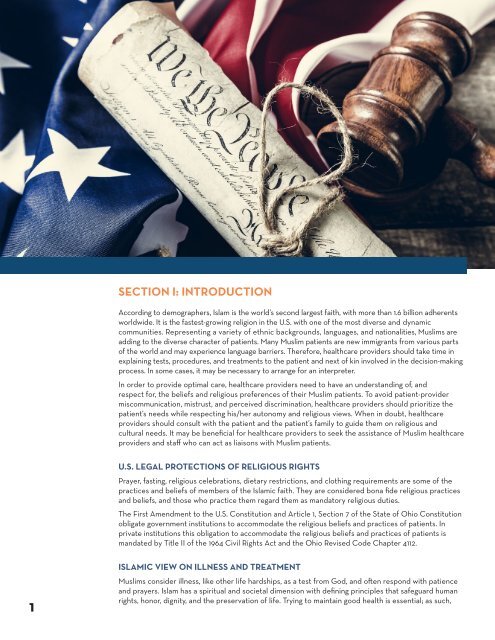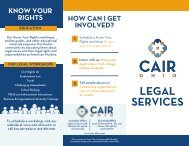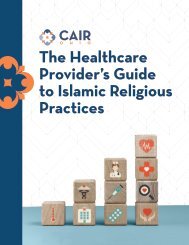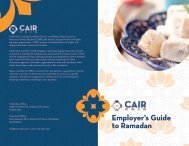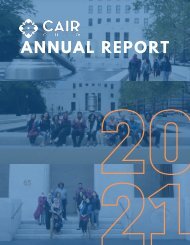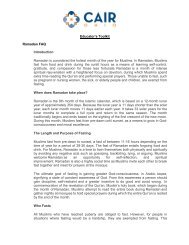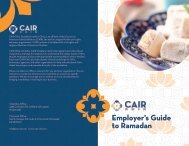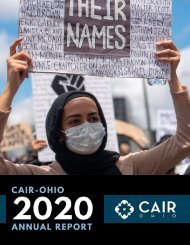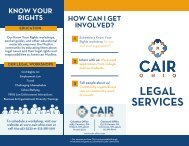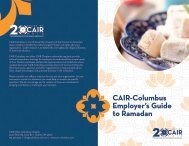CAIR-Ohio-Healthcare-Providers-Guide
You also want an ePaper? Increase the reach of your titles
YUMPU automatically turns print PDFs into web optimized ePapers that Google loves.
SECTION I: INTRODUCTION<br />
According to demographers, Islam is the world’s second largest faith, with more than 1.6 billion adherents<br />
worldwide. It is the fastest-growing religion in the U.S. with one of the most diverse and dynamic<br />
communities. Representing a variety of ethnic backgrounds, languages, and nationalities, Muslims are<br />
adding to the diverse character of patients. Many Muslim patients are new immigrants from various parts<br />
of the world and may experience language barriers. Therefore, healthcare providers should take time in<br />
explaining tests, procedures, and treatments to the patient and next of kin involved in the decision-making<br />
process. In some cases, it may be necessary to arrange for an interpreter.<br />
In order to provide optimal care, healthcare providers need to have an understanding of, and<br />
respect for, the beliefs and religious preferences of their Muslim patients. To avoid patient-provider<br />
miscommunication, mistrust, and perceived discrimination, healthcare providers should prioritize the<br />
patient’s needs while respecting his/her autonomy and religious views. When in doubt, healthcare<br />
providers should consult with the patient and the patient’s family to guide them on religious and<br />
cultural needs. It may be beneficial for healthcare providers to seek the assistance of Muslim healthcare<br />
providers and staff who can act as liaisons with Muslim patients.<br />
U.S. LEGAL PROTECTIONS OF RELIGIOUS RIGHTS<br />
Prayer, fasting, religious celebrations, dietary restrictions, and clothing requirements are some of the<br />
practices and beliefs of members of the Islamic faith. They are considered bona fide religious practices<br />
and beliefs, and those who practice them regard them as mandatory religious duties.<br />
The First Amendment to the U.S. Constitution and Article 1, Section 7 of the State of <strong>Ohio</strong> Constitution<br />
obligate government institutions to accommodate the religious beliefs and practices of patients. In<br />
private institutions this obligation to accommodate the religious beliefs and practices of patients is<br />
mandated by Title II of the 1964 Civil Rights Act and the <strong>Ohio</strong> Revised Code Chapter 4112.<br />
1<br />
ISLAMIC VIEW ON ILLNESS AND TREATMENT<br />
Muslims consider illness, like other life hardships, as a test from God, and often respond with patience<br />
and prayers. Islam has a spiritual and societal dimension with defining principles that safeguard human<br />
rights, honor, dignity, and the preservation of life. Trying to maintain good health is essential; as such,


